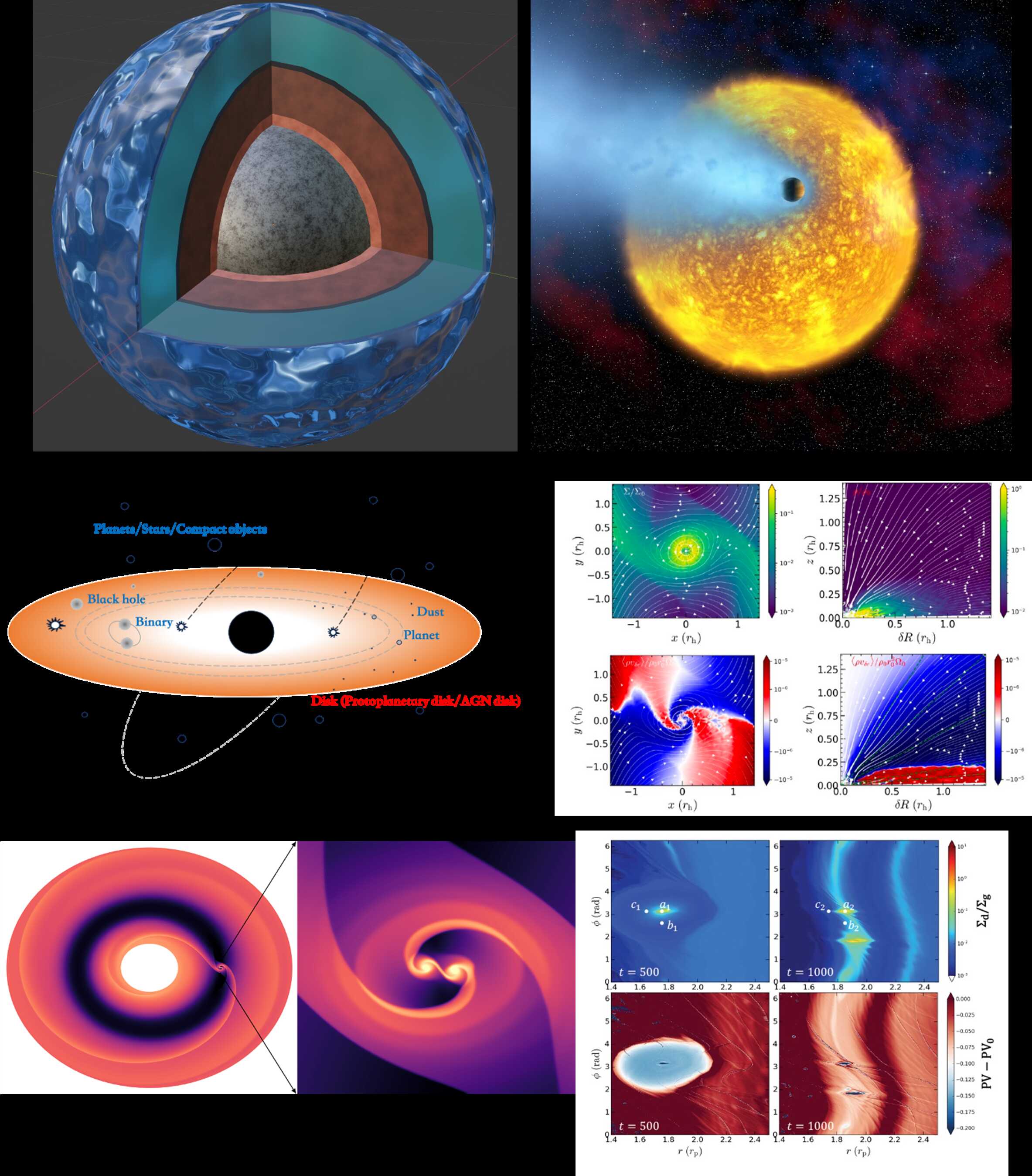Observational Statistics and Numerical Simulations of Exoplanets

Team Leader: Hui Zhang
Staff Members: Chenliang Huang, Yaping Li, Bixuan Zhao
Postdoctoral Researchers: Liqing Huang, Yinhao Wu
Students: Linhan Yang, Helin Lei, Junpeng Pan
Research Fields:
Our group is responsible for the design and development of the ET Scientific Application System . In terms of observational data processing, we have carried out systematic software development that covers the full workflow of photometric and spectroscopic analysis. For both space- and ground-based observations, we have developed high-precision data-processing pipelines for light-curve extraction, systematics correction, and periodic-signal detection. At the same time, the team is also developing spectroscopic processing tools adaptable to data from different telescopes, enabling integrated analyses ranging from data preprocessing and line-profile fitting to parameter retrieval. These efforts provide reliable support for exoplanet transit detection, feature characterization, and stellar research. In parallel, we are actively incorporating artificial intelligence techniques into astronomical big-data processing and weak-signal detection, aiming to further enhance both efficiency and sensitivity.
We also develop and maintain the open-source terrestrial-planet interior-structure code Magrathea, which we use to constrain the interior compositions of planets with measured masses and radii. We also examine how emission lines broaden through electron scattering in ionized environments, such as supernova remnants.
Theoretically, the main research interest of our group is the planet formation and evolution via multi-fluid hydrodynamical simulations, including the dynamics of gas and dust in protoplanetary disks, planet-disk interactions. Another key aspect of our research involves the accretion physics of compact objects such as black holes.
Speaker:Speaker: Alina Boecker (University of Vienna)
Time:Time:3:00 pm Sep. 18th (Thursday)
Location:Location: Lecture Hall, 3rd floor
Speaker:Speaker: Yanan Wang (NAOC)
Time:Time:3:00 pm Sep. 11th (Thursday)
Location:Location: Lecture Hall, 3rd floor
Speaker:Speaker: Gregory Herczeg (KIAA/Peking University)
Time:Time:3:00 pm Sep. 04th (Thursday)
Location:Location: Lecture Hall, 3rd floor
Speaker:Speaker: Zhang Shuang-Nan (IHEP)
Time:Time:3:00 pm June 12th (Thursday)
Location:Location: Lecture Hall, 3rd floor